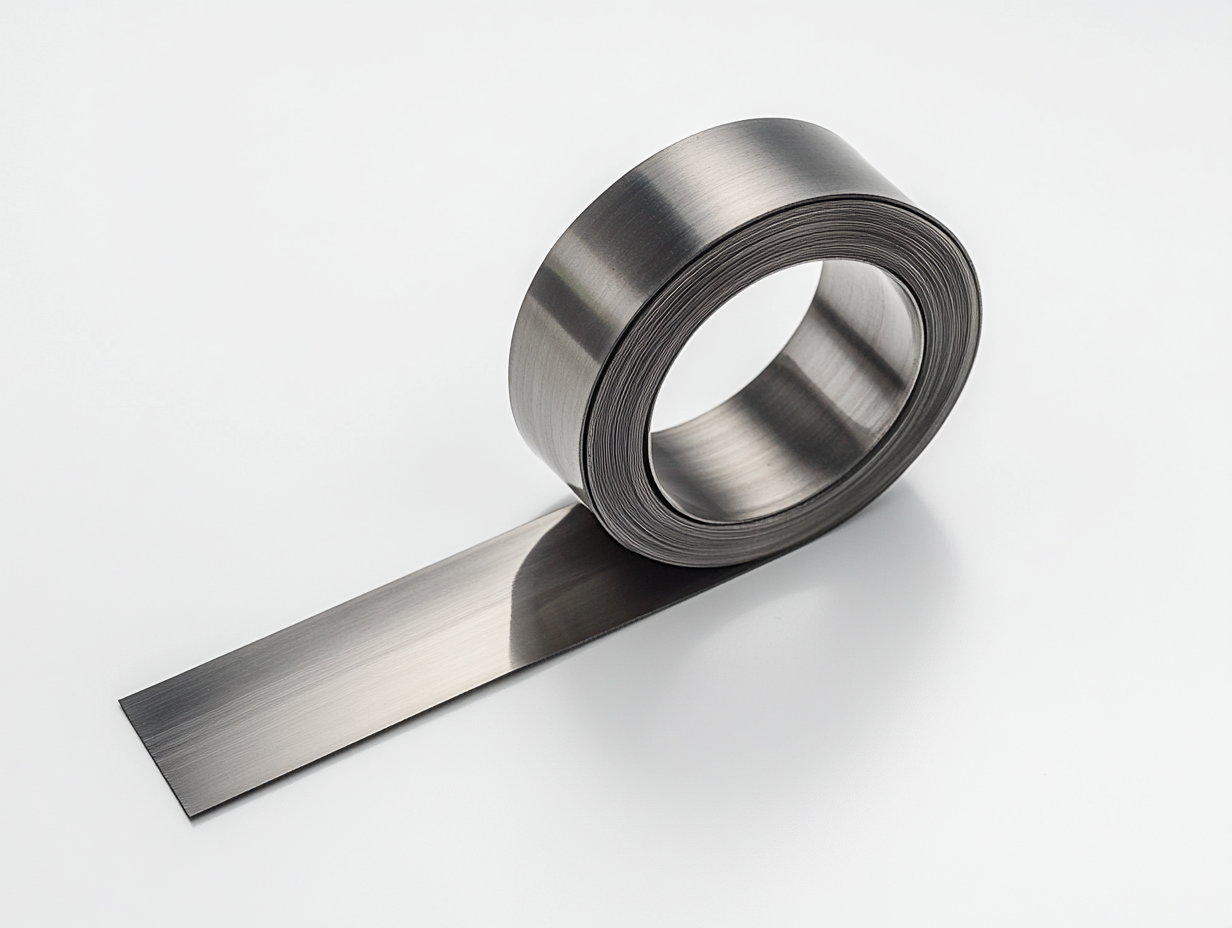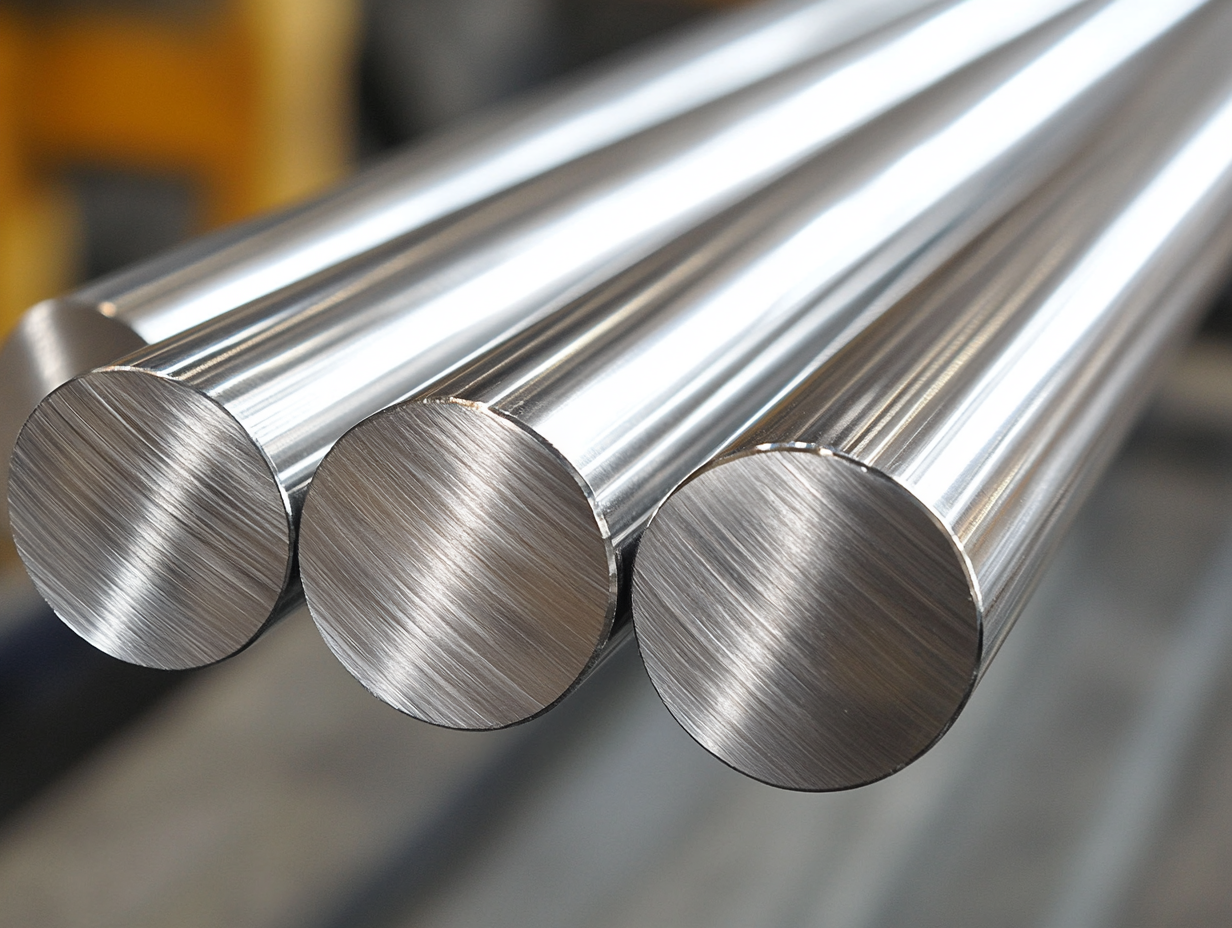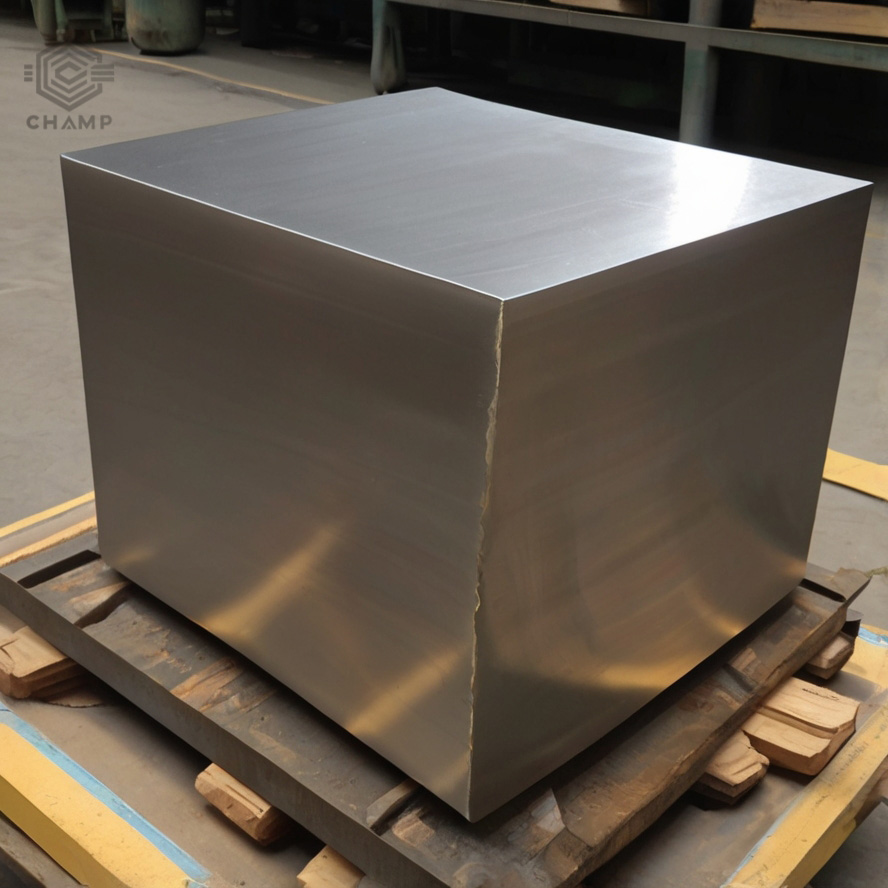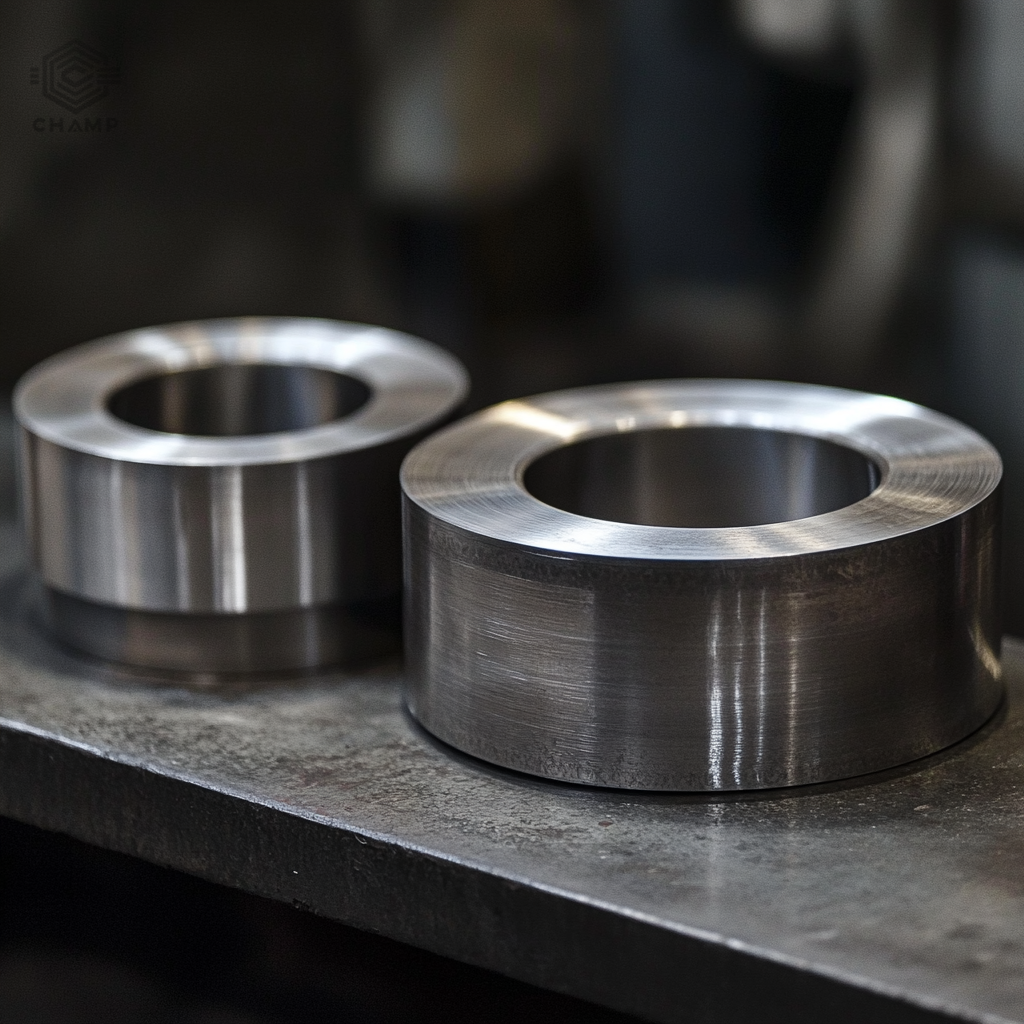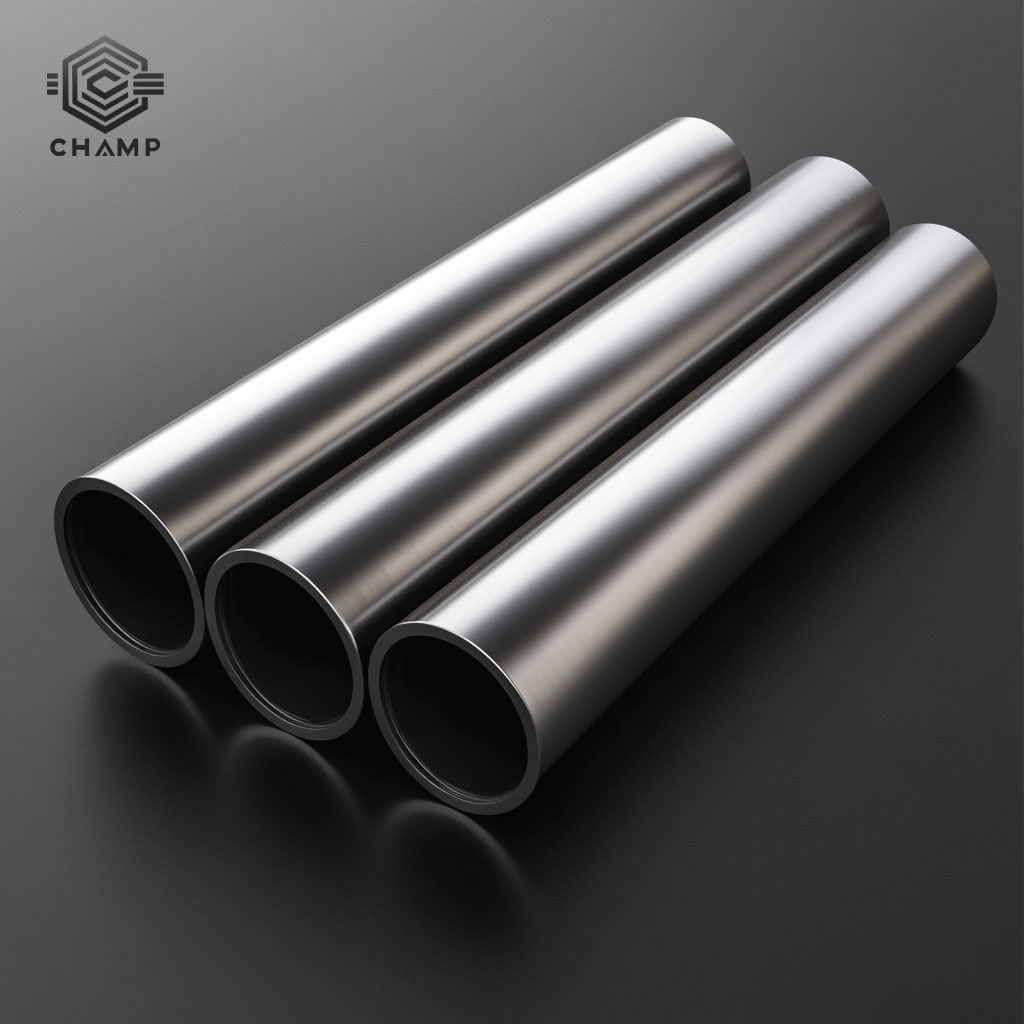Titanium Grade 12 (Ti-0.3Mo-0.8Ni) (High Corrosion-Resistant Titanium Alloy)
QR code
Detail
Product Introduction
Titanium Grade 12 (Ti-0.3Mo-0.8Ni), UNS Number: R53400, is a corrosion-resistant titanium alloy developed to improve the crevice corrosion resistance of pure titanium. It is a near-α alloy containing 0.3% Mo and 0.8% Ni, which not only strengthens the alloy but also provides excellent resistance to crevice corrosion in high temperatures, low pH chlorides, and mildly reducing acids. Its corrosion resistance is significantly superior to pure titanium and is close to Grade 7 alloy.
Nickel (Ni) enhances titanium’s resistance to crevice corrosion in hydrochloric acid solutions. However, in reducing acids, the corrosion resistance of Ti-Ni alloys is lower than that of pure titanium. The appropriate addition of molybdenum (Mo) improves the corrosion resistance of Ti-Ni alloys in reducing environments.
Grade 12 alloy also has good formability and weldability, making it widely used in the chemical industry. This alloy is typically used in the annealed condition. Although it is challenging to process, it offers irreplaceable advantages in specific applications. For further performance optimization, appropriate heat treatment and surface treatment can be applied to enhance corrosion resistance and mechanical properties.
Product Forms
Available in bars, plates, tubes, wires, strips, forgings, castings, and machined parts, with options for corresponding surface treatments and heat treatments.
Physical Properties
Chemical Composition (%)
• Ti = Balance
• Mo = 0.2% ~ 0.4%
• Ni = 0.6% ~ 0.9%
• Fe ≤ 0.30%
• C ≤ 0.08%
• N ≤ 0.03%
• H ≤ 0.015%
• O ≤ 0.25%
Key Alloying Elements and Their Effects
• Molybdenum (Mo): Enhances corrosion resistance, especially against localized corrosion (pitting and crevice corrosion), and improves high-temperature strength and creep resistance.
• Nickel (Ni): Increases alloy strength and enhances corrosion resistance, particularly in reducing acid environments.
Other Physical Properties
• Density at 20°C: 4.54 g/cm³
• Elastic Modulus at Room Temperature: 103 ~ 107 GPa
• Hardness: 180 ~ 215 HB
• Phase Transition Temperature: 890°C ± 15°C
• Density (g/cm³): ~4.51
• Melting Point (°C): ~1660
• Tensile Strength (MPa): 550 - 700
• Yield Strength (MPa): 450 - 600
• Elongation (%): 15 - 20
• Elastic Modulus (GPa): 110 - 120
Material Characteristics
✔ High Corrosion Resistance: Due to the presence of molybdenum and nickel, this alloy performs exceptionally well in saltwater, acidic environments (e.g., sulfuric acid, hydrochloric acid), and high-temperature atmospheres.
✔ Excellent Strength and Toughness: Exhibits superior mechanical properties, suitable for high-load applications.
✔ Good Weldability: Compatible with electron beam welding, laser welding, and TIG welding, with stable properties after welding.
✔ Pitting and Crevice Corrosion Resistance: More resistant to localized corrosion than pure titanium, making it ideal for seawater and high-chloride environments.
✔ Thermal Stability: Maintains good mechanical properties at high temperatures and resists creep deformation.
✔ High Strength: TA10 titanium alloy features an excellent strength-to-weight ratio, making it suitable for high-strength applications.
Manufacturing and Processing Performance
✔ Machinability: Titanium alloys are challenging to machine and require specialized cutting tools (such as PCD or tungsten carbide tools) along with appropriate cooling fluids.
✔ Heat Treatment:
• Annealing Temperature: 600 - 750°C, which enhances ductility and corrosion resistance.
• Solution Treatment & Aging Treatment: Further optimize strength and corrosion resistance.
✔ Welding Performance: Can be welded using electron beam welding, TIG welding, etc., but must be performed in an inert gas environment (e.g., argon gas) to prevent oxidation.
Application Fields
Ti-0.3Mo-0.8Ni is mainly used in corrosion-resistant and high-strength applications, including:
✔ Chemical Industry: Corrosion-resistant pipes, storage tanks, heat exchangers, reactors, etc.
✔ Marine Engineering: Desalination equipment, offshore platforms, diving gear.
✔ Aerospace: Aircraft structural parts, high-temperature alloy components.
✔ Medical Devices: Biocompatible components such as bone plates and implants.
✔ Power Industry: Heat exchanger tubes for nuclear power plants.
Comparison with Other Titanium Alloys
Alloy Grade | Main Alloying Elements | Key Characteristics |
Ti-0.3Mo-0.8Ni | Mo, Ni | High corrosion resistance, suitable for marine & chemical environments |
Ti-6Al-4V | Al, V | Widely used in aerospace, high strength, high heat resistance |
Ti-3Al-2.5V | Al, V | Moderate strength, excellent formability, used for tubing and bicycle frames |
Ti-0.2Pd | Pd | Superior corrosion resistance, suitable for nuclear & chemical industries |

